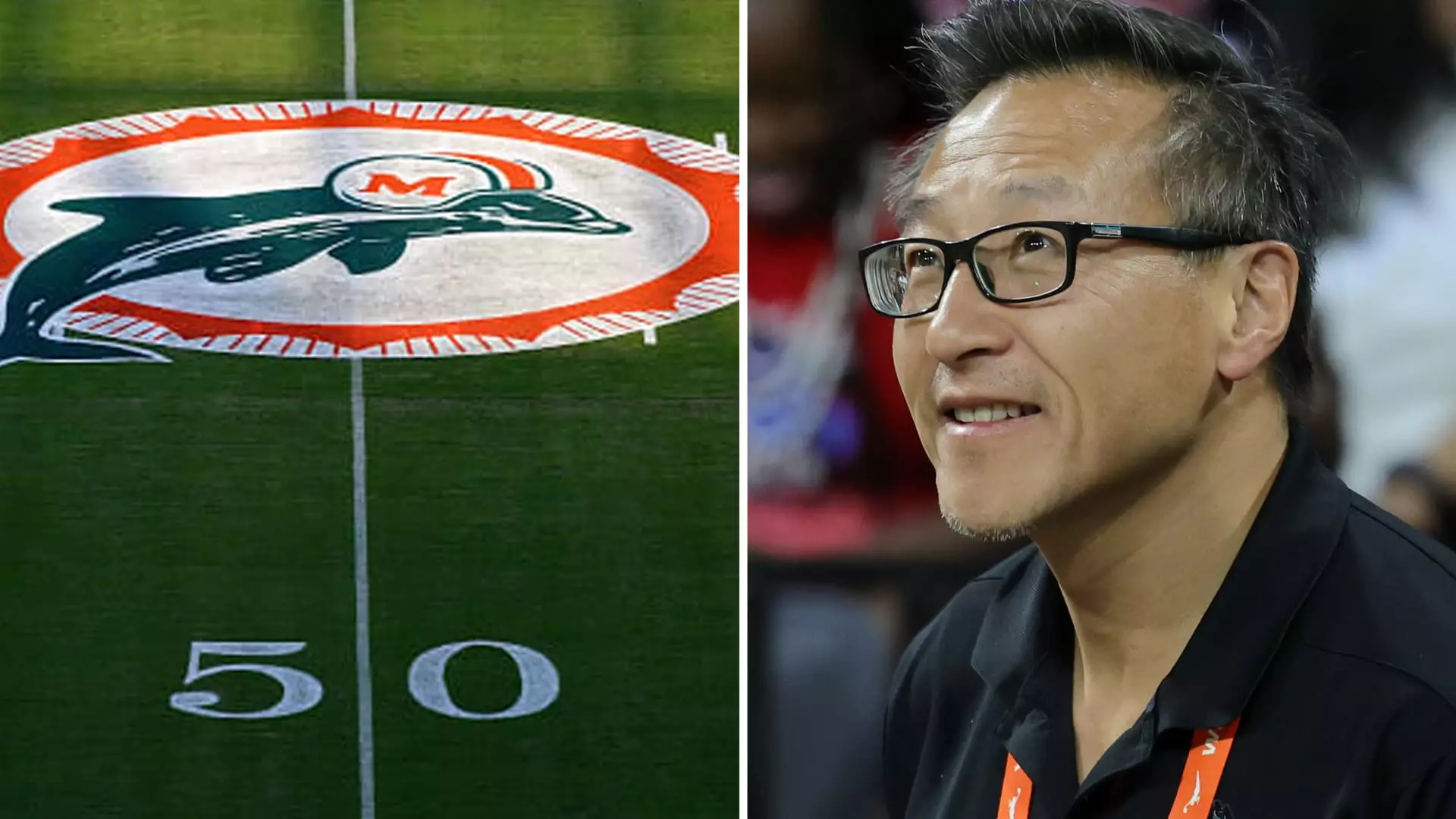The Miami Dolphins, one of the notable franchises in the National Football League (NFL), are reportedly in advanced discussions regarding the sale of a minority stake in the team. This prospective deal, which involves notable figures and firms such as Ares Management and billionaire Joe Tsai, underscores a broader trend in sports franchising where owners actively seek to diversify their investments and optimize revenue-generating opportunities.
The assets associated with this potential sale include not only the Miami Dolphins but also Hard Rock Stadium and operational rights to high-profile events, such as the Miami Grand Prix and roughly half of the Miami Open tennis tournament. These negotiations suggest a striking valuation of approximately $8.1 billion for the entire portfolio. This figure raises intriguing questions about the rising valuations of franchises in the NFL and the broader sports sector. Notably, a controlling interest in these same assets would demand a valuation exceeding $10 billion, suggesting a burgeoning market in sports investments.
The NFL has traditionally maintained stringent rules regarding ownership structures, particularly resisting private equity (PE) investments. However, the recent approval of private equity firms to invest up to a 10% stake in NFL teams signals a seismic shift in this paradigm. With the Miami Dolphins regarded as the league’s eighth most valuable franchise at $7.1 billion (excluding stadium valuations), the dynamics of ownership and investment are evolving rapidly.
Stephen Ross, the current owner of the Dolphins, acquired the team in 2009 for $1.1 billion. His motivations for this recent minority stake sale seem rooted in a desire to expand his real estate ventures in South Florida while furthering his investments in the sports sector. This dual strategy illustrates a unique blend of sports ownership and real estate investment, a model that could become increasingly popular among franchise owners looking to maximize revenue streams.
One critical aspect of Ross’s approach is his dual role as both owner and operator of the Dolphins’ home stadium. This arrangement empowers him to capitalize on various events beyond football, driving additional revenue through hosting major sports and entertainment gatherings. In fact, the Dolphins reported revenue of $673 million in 2023, a testament to the lucrative opportunities that exist beyond traditional game-day revenues.
The NFL owners’ recent vote to allow limited private equity investment showcases the league’s adaptation to changing market realities. With franchise valuations soaring, finding qualified buyers on the open market can be challenging. Thus, bringing in outside capital, especially from well-established private equity firms, could provide teams with the financial flexibility necessary to thrive in an increasingly competitive landscape.
In parallel, Joe Tsai has been aggressively expanding his own sports portfolio. As the owner of the Brooklyn Nets and the New York Liberty, as well as the operator of the Barclays Center, Tsai’s ventures illustrate his significant footprint in the sports industry. Moreover, he holds ownership stakes in teams across different sports leagues, including the San Diego Seals and Las Vegas Desert Dogs in the Premier Lacrosse League and Los Angeles FC in Major League Soccer.
This trend of sports conglomeration raises intriguing implications for the structure and funding of teams moving forward. With owners like Ross and Tsai leveraging their wealth and influence to control multiple franchises in various sports, the potential for increased cooperation and cross-promotion among teams becomes a distinct possibility. This could lead to innovative revenue-sharing models that benefit all parties involved.
The Miami Dolphins’ pursuit of new investments not only highlights the changing dynamics within the NFL but also echoes a broader trend across professional sports: the blending of sports ownership with strategic business investments. As the sports landscape continues to evolve, with owners focusing on both franchise value and revenue potential, this could signal a new chapter in how sports teams operate, garner investment, and leverage their assets.
The Miami Dolphins’ potential minority stake sale represents more than just a financial maneuver—it is indicative of the wider shifts taking place in sports ownership today. As the league adapts to new financial realities and ownership structures become more intertwined with broader business strategies, franchises like the Dolphins may well lead the way in redefining what it means to own a sports team in the modern era.


Leave a Reply